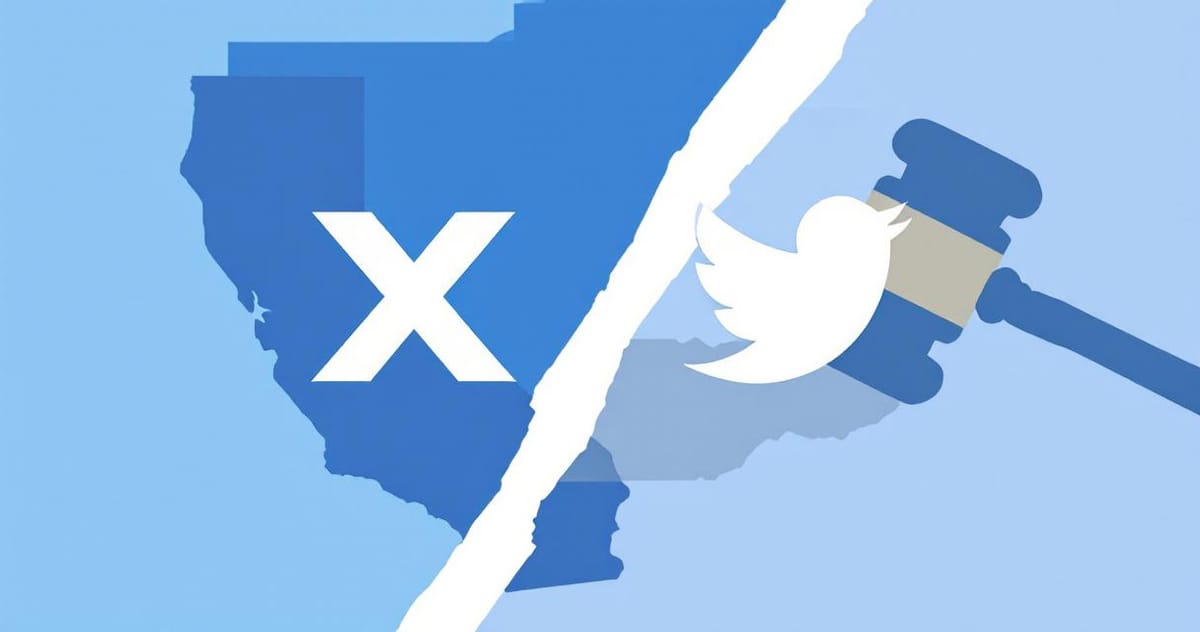Social media platform X (formerly Twitter) has opened a new front in its war against state-level content moderation laws, filing a lawsuit to block New York's recently passed "Hateful Conduct Accountability Act" just weeks after successfully challenging similar legislation in California. The move signals an escalating conflict between tech platforms and state governments over who controls online speech policies.
A Familiar Legal Playbook
X's lawsuit, filed in the Southern District of New York on Tuesday, mirrors the arguments that proved successful in California. The platform contends that New York's law violates the First Amendment by compelling speech and imposing burdensome disclosure requirements that would fundamentally alter how social media companies operate.
The New York law, signed by Governor Kathy Hochul in October, requires social media platforms with over one million users to:
- Publish detailed policies on how they address "hateful conduct"
- Create transparent reporting mechanisms for users
- Provide direct response systems for complaints
- Submit annual transparency reports to the state attorney general
Platforms that fail to comply face fines of up to $1,000 per day per violation.
Building on California Momentum
X's confidence appears bolstered by its September victory in California, where Federal Judge William Shubb issued a preliminary injunction blocking key provisions of the state's AB 587. That law similarly required platforms to disclose their content moderation policies and submit regular transparency reports.
Judge Shubb ruled that California's law likely violated the First Amendment by compelling platforms to speak about controversial topics in ways dictated by the state. "The First Amendment protects not only the right to speak, but also the right to refrain from speaking," he wrote in his decision.
Legal experts suggest X is hoping for similar judicial skepticism in New York. "The California ruling created a powerful precedent that states cannot use disclosure requirements as a backdoor way to control platform policies," explains Columbia Law Professor Kate Klonick, who specializes in online speech governance.
The State Regulation Surge
New York's law is part of a broader wave of state-level attempts to regulate social media platforms. At least 15 states have introduced or passed similar legislation in 2024, reflecting growing bipartisan frustration with Big Tech's content moderation practices.
Supporters argue these laws promote transparency and accountability. New York Assemblymember Grace Lee, who sponsored the bill, stated: "New Yorkers deserve to know how social media companies are addressing hate speech that threatens our communities. This isn't about controlling speech—it's about transparency."
However, tech industry groups warn that a patchwork of state laws would create an impossible compliance burden. "Imagine trying to run a global platform while simultaneously adhering to 50 different state requirements," says Carl Szabo, vice president of NetChoice, a tech industry association that has supported X's legal challenges.
First Amendment Tensions
At the heart of these legal battles lies a fundamental question: Can states compel private companies to disclose their editorial decisions? X argues that content moderation is inherently an editorial function protected by the First Amendment, similar to a newspaper's decision about which letters to publish.
The platform's legal filing emphasizes that forced disclosure of moderation policies could chill free expression by exposing companies to political pressure and litigation. "The law weaponizes transparency requirements to coerce platforms into adopting state-preferred speech policies," X's attorneys argue.
What's at Stake
The outcome of X's New York lawsuit could have far-reaching implications:
For Tech Platforms: A loss could trigger an avalanche of state regulations, forcing companies to navigate a complex web of potentially conflicting requirements.
For States: A victory would validate their authority to impose transparency requirements on tech companies operating within their borders.
For Users: The decision will influence how much information they receive about platform policies and how their reports of harmful content are handled.
The Road Ahead
Legal observers expect the New York case to move quickly, with X likely seeking a preliminary injunction before the law's enforcement date in January 2025. If granted, it would freeze the law's implementation while the constitutional questions are fully litigated.
The broader battle over platform regulation shows no signs of abating. With federal legislation stalled in Congress, states are increasingly taking matters into their own hands. Meanwhile, platforms like X are drawing firm constitutional lines in the sand.
As this legal drama unfolds across multiple jurisdictions, one thing remains clear: the fight over who controls online speech policies—tech companies or governments—is far from over. The New York lawsuit represents just the latest chapter in what promises to be a defining legal battle of the digital age.
Target Audience: Tech industry professionals, legal practitioners, policy makers, digital rights advocates, social media managers, journalists covering tech policy, and engaged citizens interested in online free speech issues.
